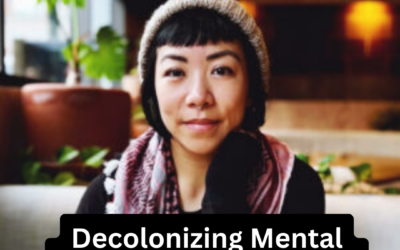Podcast: Play in new window | Download (Duration: 34:32 — 23.8MB)
Subscribe: Apple Podcasts | Spotify | Amazon Music
Improve your sense of security and communicate more effectively inside yourself, and with those you love by understand preoccupied/anxious attachment. Begin to learn to manage your body’s reactivity in relationships by learning about preoccupied/anxious attachment and how it relates to unconscious regulation of the brain.
Dr. Ann Kelley and Sue Marriott LCSW, CGP discuss the Insecure Preoccupied, or Anxious/Ambivalent side of the attachment spectrum. This discussion can stand alone, but it also continues as a soft Part 2 from last episode TU59: Are You Cool or Just Cut Off – Dismissing Attachment. The hosts begin to really go into how to use the attachment spectrum to identify where you might fall and how to move towards a more secure place.
Find out how anxious attachment is formed and passed on, as well as how starting anxious affects relationships later in our adult life. You’ll learn how to manage relationships better by turning inwards and regulating yourself rather than focusing on others to calm you down. Therapist Uncensored co-hosts Kelley and Marriott will also provide basic tips towards identifying where you are on the attachment spectrum and how to move from anxious attachment towards security.
Watch our new video introduction to attachment here, and support us on Patreon below:
TU60: Podcast episode show notes-
0:00-10:00
Introduction and recap on attachment, organized & disorganized categories of attachment
Red side of the attachment spectrum – preoccupied attachment
Transferring preoccupied attachment from parent to child (sometimes out of fear of mis-parenting), children reacting to parents’ state of mind. Body can’t relax if caretaker is harboring unsettling feelings.
Anxiously attached parents are better at attuning to fear in their child
Anxiously attached parents can’t tolerate their own anxiety when child gets too far away. Find the balance between letting children go of and have fun and being there when they need it.
10:00-20:00
Very young secure children calm down when parents return after being separated. “Angry ambivalent” children will go to the parent but won’t let them soothe them, won’t trust that parent will remain there.
Identifying your attachment type and handling it in your adulthood. We’re already attuned to other people and we’re used to the sense of rejection but it’s hard to attune to your own body and figure out what YOU want.
Hyperactivation is an exaggeration of a normal healthy response (e.g. looking for closeness), being perceived as “clingy” or receiving disproportionate “blame”. Over-activation occurs in the red zone (as opposed to under-activation in the blue zone).
20:00-30:00
Underlying assumption that if you’re rejected or abandoned, you’re not OK
You can’t always look to the other person to soothe you; this might be your own history at play.
If you fall on red side of spectrum, try to scan externally less and instead check on how you’re doing. Identify your own body cues for triggers (separation, defining yourself and feeling separate, etc.), focus inwards.
Be selfish (at least in your body scan)! Have your “personal policy”. Learning to hold off on talking about things until you calm down.
30:00-40:00
Learning how to use “soft tosses” in communication with preoccupied individuals. Figuring what you really want out of a conversation (it might not just being proved right). Understanding your own state of mind and the other person’s simultaneously. Giving your partner a “credibility statement”.
Red side should move towards self. Blue side should move towards others.
Wrap up, tips, and outro.
Resources for this episode:
Attached The New Science of Adult Attachment by Amir Levine
A Secure Base by John Bowlby, The father of attachment! Mary Main, Mary Ainsworth both primary researchers with Bowlby.
Mary Main and the Adult Attachment Interview Good summary, check it out!!
Assessing Adult Attachment A Dynamic-Maturational Approach to Discourse Analysis (2011) Patricia Crittendon and Andrea Landini, Book that updates the previous attachment literature specific to clinical populations.
Attachment Disturbances in Adults Treatment for Comprehenisve Repair (2016) Brown and Elliott – New book that is a MUST HAVE for clinicians interested in attachment.
Clinical Application of the Adult Attachment Interview Steele and Steele – Excellent edited book on using the AAI in various clinical settings – we use it to learn what is important clinically that the AAI is getting at re: best practices for treating adult attachment.
Wired for Love by Stan Tatkin – Stan Tatkin is a guru at making the complex ideas of interpersonal neurobiology understandable to the public. Check out any of his books as recommended!














